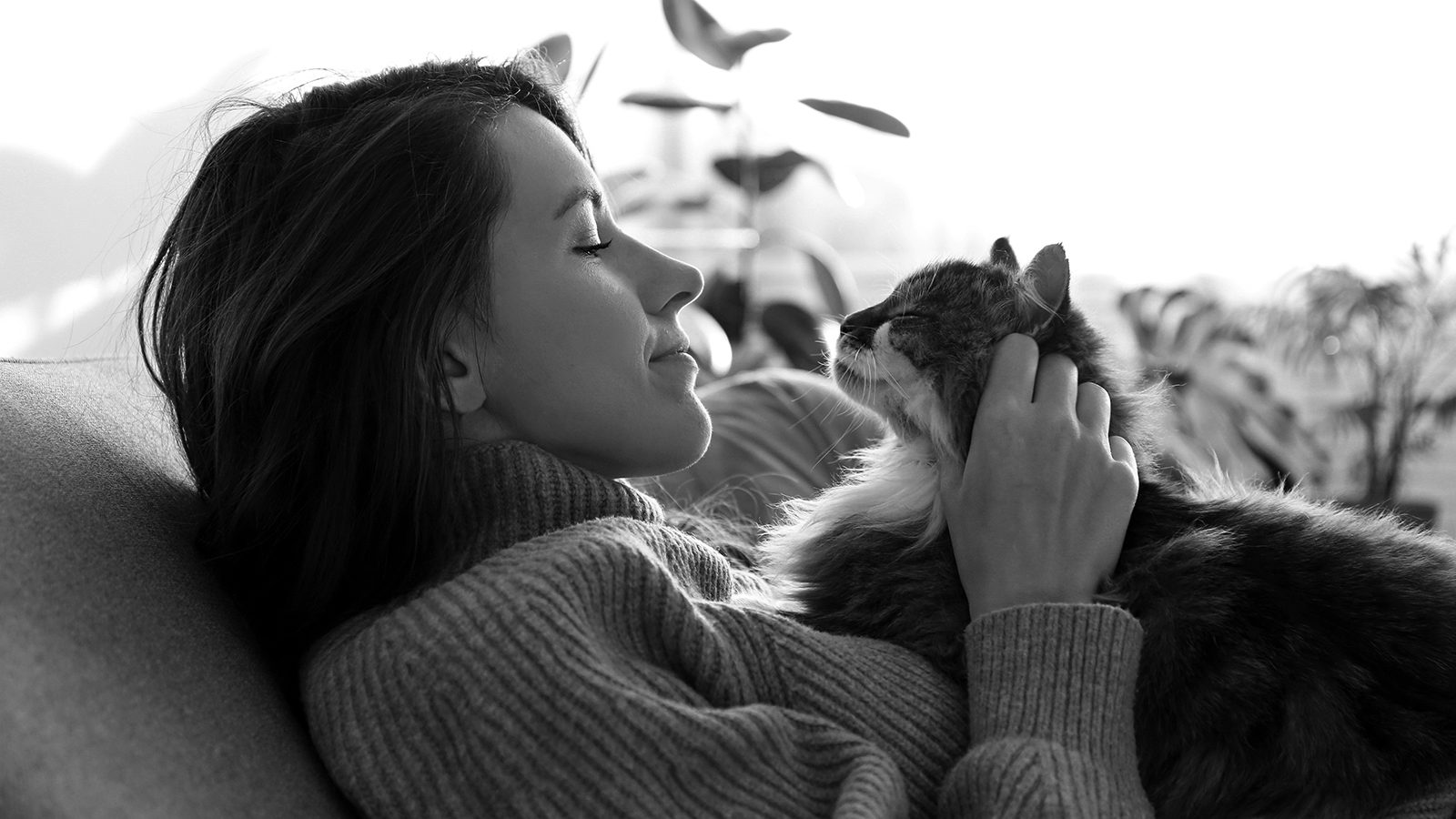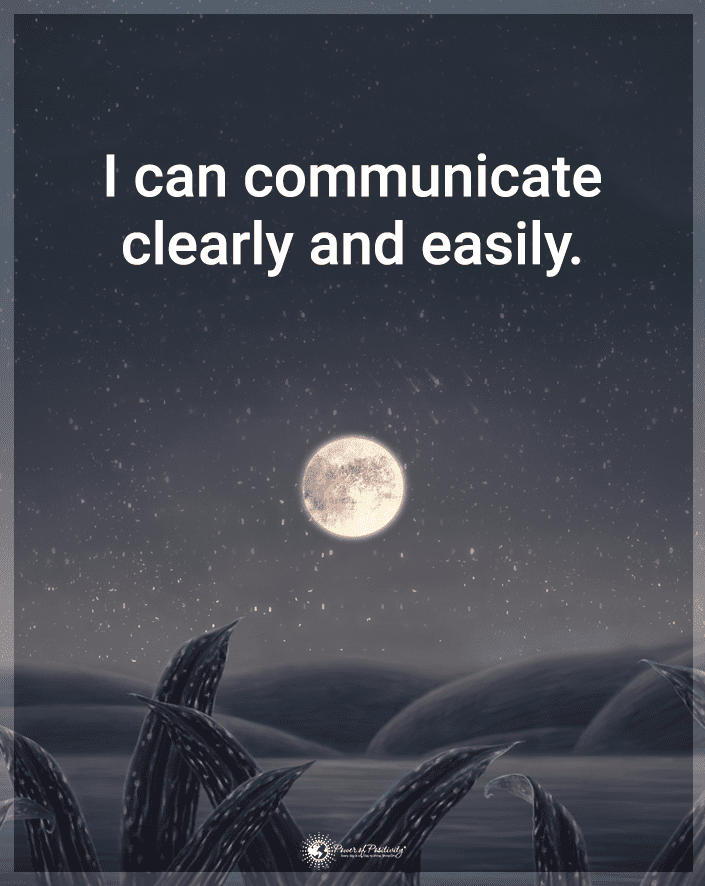Like dogs, cats are constantly communicating with their humans. They vocalize, pose differently, and move their tails, ears, and eyes to let their humans know what they want and need. Learning to read feline communication is vital if you wish to have a happy kitty. Here are some of the main ways your cat communicates with you and what they’re trying to tell you.
Cats and their expressive vocalizations
Here are the ways kitties “talk” to their human friends.
1 – Chirping
They’re not birds, but your feline friend does chirp. It sounds like a meow but with more of a rolled tongue rather than an open mouth. Mama kitties chirp to get their kitten’s attention. When your cat chirps, it usually shows they’re giving you or another cat a friendly greeting. Vets suggest you chirp to greet your feline friends when they rush to meet you. They’ll understand what you’re saying.

2 – Meow
Meowing is your cat’s primary way of communicating with you. This all-purpose form of communication means different things depending on your cat. As you understand your cat, you’ll learn precisely what their meows mean and how to respond to each one of them.
3 – Howling
A kitty’s howl may send a chill up your spine. This is because it’s a cry for help. Felines howl when they feel threatened or are in trouble. They sometimes howl when angry, but angry yowls usually accompany these. If your feline is howling, there is a good chance they want your help right away. Go find out what’s going on.
4 – Hissing
Similar to howling, when a cat hisses, they feel threatened. Although cats avoid confrontation, they’ll hiss to warn the culprit to back off because they’re about to attack. Don’t underestimate your cat’s hissing. If you ignore it, you’re apt to get a good scratch on your nose from your sweet pet.
5 – Panting
Felines rarely pant except in sweltering weather or after giving birth. When a cat pants, it usually shows fear or excitement. If your cat pants, keep an eye on them because they could be ill and need medical attention.
6 – Purring (humans love this about their cats!)
Most people have heard a cat’s melodious purring sound. While it often means your feline is content, it could mean they want you to stay close by because you’re stroking their fur. This comfort-seeking sound is a classic cat vocalization. They love to be near their humans, especially those who pet and stroke them.
Understanding feline facial expressions and the body language of cats
7 – Cats rubbing against your legs
Besides communicating by vocalization, your furry friends can communicate with their bodies. If you’ve had a cat rub against your legs, it means they like you. Think of it as your cat giving you a little hug. It’s their way of saying, “I’m glad you’re here.”
8 – Tail talking
Kitty tails can’t talk, but they sure communicate with humans. Like dogs, their tails let you know how they feel. A happy kitty lifts their tail with relaxed fur, but a straight bottom with a tight coat means they’re a little peeved at you. When a cat tucks their tail between its legs, they’re anxious or worried about something. A quick, thrashing tail means you might get scratched if you don’t watch out. Be sure to learn what their tail communicates to you, or you might get hurt.
9 – Ear communication
The changing position of your cat’s ears means different things. When your kitty’s ears flatten against their head, they’re angry and ready to attack. Straight, relaxed ears communicate calmness. Your cat’s ears change their position quickly. They’re always on alert. So keep an eye on those ears if you want to understand what your feline is saying to you.
10 – Blinking their eyes
An extended, slow blinking means your kitty enjoys being around you. It’s your cat’s way of letting you know they accept you. It’s thought that kitties do this in response to a low-stress hormone in their body. You can return the sentiment with some cat communication by blinking slowly at your feline.

11 – Staring at you
While blinking is usually a good sign, a cat that stares at you feels threatened. Alpha felines do this to establish their territory and intimate other cats into submission. So, if you notice a cat staring at you, give them some space.
12 – Poses and postures
Cats posture their bodies in such a way to communicate with their humans. Their posture usually communicates how they feel about you or other animals around them. Depending upon the situation, their stance can be aggressive or friendly. Here are some common poses you’ll notice with your cat.
Stretching pose:
Kitties will stretch when they’re relaxed and comfortable. Laying on the ground with their belly exposed means they’re comfortable enough to show vulnerability. They trust you and the environment around them. Don’t be fooled into thinking your kitty isn’t on guard. Even when they’re relaxing, your kitty observes what’s going on around them. They quickly roll over, with claws out to defend themselves instantly.
Side-lying:
Lying on their side is another familiar, relaxed pose. Legs bent behind them, legs straight out behind them with a loose tail. This is a classic calm kitty posture.
Yawning:
Although it’s not exactly a pose, it means yawning signifies relaxation. This yawn usually has no teeth because they aren’t upset, just being a laid-back kitty.
Tense posture:
Your cat communicates they feel tense when they slink around the house or your backyard. This protective pose keeps your cat close to the ground with its ears alert and tail twitching. They’re on the prowl, guarding their territory against predators.
Anxious pose:
Similar to their tense pose, the back part of their body is lower when they walk around. They are worried and may curl up, bringing their tail close to their body. If your kitty does this, you can reassure them you’re there to protect them from whatever makes them anxious.
Fearful pose:
A cat gets into this position when they feel afraid. They breathe heavily, crouch low to the ground, and curl their tail. This is to make themselves look more petite and lower to the ground. Your cat may arch its back and back away. Cats don’t like to fight but will, when backed into a corner, can’t run away.
Confident pose:
A confident kitty walks comfortably with its tail held high. You may notice your cat walking around the house looking comfortably secure, saying they’re pretty darn happy to be the cat of the house.
Startled pose:
You’ve seen this cat pose. The cat’s back arches, the fur on their back bristles, and their tail straightens. Your cat may do this when a dog approaches, and they feel threatened. Sometimes little kids make cats feel threatened and afraid. Try to comfort your kitty with gentle words, but don’t pick them up. It’s best to remove the threat and allow them time to calm down.
What other things does your cat want to communicate with you?
- Naughty behavior: Your cat may communicate with their “bad” behavior. Don’t assume they’re being naughty because they may want to tell you something. If your cat is upset, they might express unhappiness by leaving you a little “surprise” outside their litter box. This could mean something is off with them. Perhaps they don’t feel well. Maybe someone pushed them off their favorite chair, and your feline wants to tell you they’re upset. They know you love them and will help them. So that’s why they’re trying to communicate with you.
- They’re curious creatures: Don’t forget your cat is curious. They may hide in uncharacteristic places like your dryer to get your attention. Kitties love the coziness of the dryer, but it’s a dangerous hang-out for them.
- They love attention: Give your cat lots of attention. Offer toys for entertainment when you leave during the day. They love to play with cardboard boxes and tubes.
- Keep them safe: Always spay or neuter your feline and microchip them if they sneak outside under your nose.
Final thoughts on understanding what cats tell their humans
Some people say kitties don’t communicate as much as dogs, but this isn’t true. Cats communicate with their humans just as much as dogs. Your feline friend needs to be loved and given lots of attention. You are their family, and they must feel understood by you. You must learn the many ways your cat communicates with you. They vocalize with meows, howls, and purring.
Besides vocalizing, these pets use their tails, eyes, and posture to communicate their feelings. If your cat suddenly acts “bad.”
Indeed, it could be they are trying to get your attention. Perhaps they’re sick, or something happened to them, and they’re trying to tell you. Felines are social, highly emotional pets who need a human who values them. Part of loving your sweet kitty is learning their language so you’ll understand when they communicate with you.




















